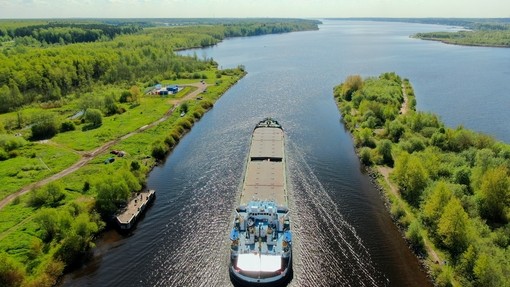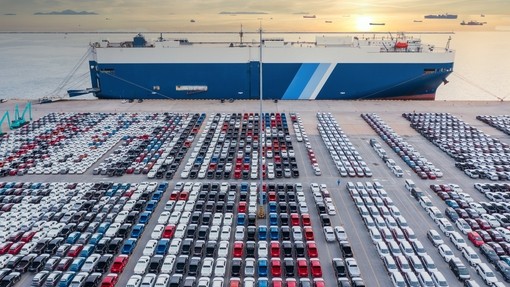IPCO (Nigeria) Limited (respondent) -v- Nigerian National Petroleum Corporation (appellant) [2017] UKSC 16

Details
The Supreme Court has recently considered the appeal from the Nigerian National Petroleum Corporation (NNPC) as to whether it can be required to put up a further US$ 100 million security in circumstances where NNPC is resisting enforcement in England of a Nigerian arbitration award.
Factual background
The dispute arose from a contract for the design and construction of a petroleum export terminal between IPCO (the respondent) and NNPC (the appellant). The contract was subject to Nigerian law and arbitration in Nigeria.
The award and Nigerian proceedings
In October 2004 an award was made in favour of IPCO for US$152,195,971 plus Naira 5 million plus interest at 14% per annum. Enforcement proceedings were brought in the English jurisdiction in November 2004.
However, an initial challenge was made before the Nigerian court by NNPC for what were termed ‘non-fraud’ reasons and, in 2009, an additional challenge was brought before the same court on the basis that IPCO procured the award through fraudulent means (the ‘fraud’ challenge).
English enforcement proceedings and initial security
At the outset of the English proceedings an order was made by Steel J for enforcement of the award. However, NNPC consequently applied for the order to be set aside under s.103 of Arbitration Act 1996 on the grounds that:
- as a result of the pending Nigerian appeals the award had not yet become binding on the parties (s.103(2)(f)); and/or
- recognition or enforcement of the award would be contrary to public policy (s.103(3)) as a result of IPCO’s fraud; and/or
- the enforcement of the award be adjourned (s.103(5)) pending the resolution of the non-fraud challenges in the Nigerian courts.
An adjournment was granted subject to NNPC providing security in the sum of US$50 million under s.103(5). In 2007, a further application to enforce the original award was made by IPCO on the basis that the Nigerian challenge was unlikely to be determined for several years. This was unsuccessful because the change of circumstances was held to be insufficient to justify a re-opening of the case. Tomlinson J gave permission to appeal and ordered a stay pending appeal, conditional upon NNPC providing further security, this time in the amount of US$30 million. Security therefore totalled US$80 million. Any decision regarding enforcement of the balance of the award was adjourned under s.103(5). A consent order dated 17 June 2009 was then made in the English proceedings whereby the decision on enforcement was further adjourned under s.103(5), upon NNPC undertaking to maintain the security of US$ 80 million thus far provided until further order.
Court of Appeal proceedings
In 2012, as a result of substantial delays in the Nigerian proceedings, a further application to enforce the award in England was made by IPCO. This was dismissed by the court at first instance. However, the Court of Appeal disagreed and an order was made that:
- the proceedings should be remitted to the Commercial Court to determine the s.103(3) issue (i.e. the public policy/fraud issues); and
- further enforcement should be adjourned pending the decision of the Commercial Court; and
- NNPC should provide, under s.103(5), additional security of US$100 million, failing which the appellant was entitled to enforce the award.
NNPC appealed against the order on the grounds that it was made without jurisdiction or was wrong in principle and/or was illegitimate in circumstances where they had a good prima facie case of fraud entitling them to resist enforcement.
Legal issues
This appeal was brought under two heads:
- whether the Court of Appeal’s order was justified by reference to s.103(5); and
- whether it was justified by reference to general English procedural rules.
Essentially, the issue for the Supreme Court to determine was the interrelation between the New York Convention on the Recognition and Enforcement of Foreign Arbitral Awards 1958, the Arbitration Act 1996 and general English procedural rules.
The Arbitration Act 1996
The Supreme Court cited the case of Dardana Ltd -v- Yukos Oil Co [2002] EWCA Civ 543 in which it was held that the court had no power under s.103(5) to order security except in connection with an adjournment. This was not the situation in the present case and the Supreme Court held that the Court of Appeal’s order was not within the scope of this jurisdiction: it had requested security not as the price of a further adjournment, but as the price of the decision on an issue under s.103(3). In short, an adjournment had not been granted pending proceedings in Nigeria but matters had instead been referred to the Commercial Court for determination.
English procedural rules
IPCO sought to further argue that, despite the lack of any express provision in s.103(3) for the granting of security, the courts were authorised by rule CPR 3.1(3). This grants English courts general power to make conditional orders. In this instance the condition of the order was that security be provided failing which enforcement would be granted.
The Supreme Court disagreed with this assertion. It held that the conditions for recognition and enforcement set out in articles V and VI of the New York Convention (to which s.103(2), (3) and (5) give effect) constitute a code and are intended to establish a common international approach. Provision of security is only authorised in circumstances where an adjournment is granted to accommodate an application to set aside or suspend the award in the foreign jurisdiction in which the award was given. It is not aimed at improving a creditor’s prospects of laying hands on assets to satisfy awards.
The appeal was allowed, the Court of Appeal’s order was set aside and the NNPC’s fraud and non-fraud challenges were remitted to the English Commercial Court.
Comment
This landmark decision clarifies that award creditors bringing proceedings under ss. 103(2) or (3) of the 1996 Act will need to seek other means of indirectly securing their award as financial security can only be requested in one specific circumstance and this is under s. 103(5). The New York Convention is intended to provide a homogenous approach to enforcement and not as a means of improving an award creditor’s prospects.
This article originally appeared in the March 2017 edition of shipping case digest. Other articles include:
Mr Nobu Su -v- Clarksons Platou Futures Limited and Another [2017] EWHC 337 (Comm)
Sinocore International Co Ltd -v- RBRG Trading (UK) Ltd [2017] EWHC 251 (Comm)






